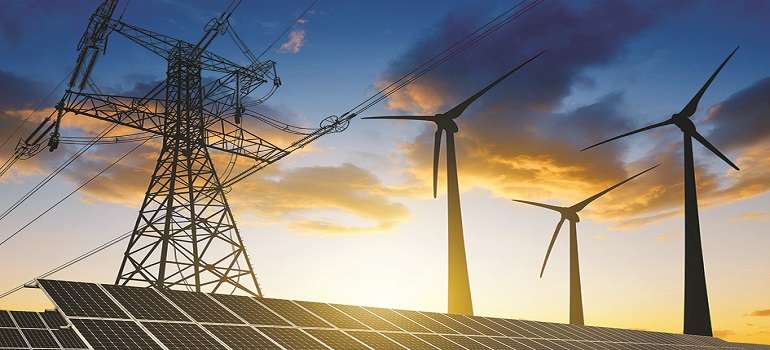
India Ratings and Research (Ind-Ra) in its latest report said that poor cash flow and credit profiles of Telangana and Andhra Pradesh discoms have undesirably affected the financial health of many renewable energy projects.
The soaring receivables from Telangana and Andhra Pradesh distribution companies (discoms) have not only weakened the internal liquidity of many projects but also necessitated a reduction in their debt service reserve accounts (DSRAs) or support from sponsors, said Ind-Ra.
Ind-Ra said projects with resourceful sponsors and adequate internal liquidity are likely to withstand the emanating stress and ride over this difficult period. However, projects with partially or fully depleted DSRAs would face a rating action. Therefore, the importance of adequate internal liquidity is coming to the fore again. In 2016, the state power utilities of Telangana and Andhra Pradesh paid ahead of time and availed rebates. In view of the surge in receivables now and other underlying issues such as tariff non-revision, the power utilities of these states have become fallen angles.
The challenges to projects increase in the absence of an approved working capital line. Working capital debt provides projects liquidity cushion, helping in deferring the liquidity strain. Nonetheless, a working capital line is also debt.
Power generation of Ind-Ra-rated projects have remained in line with expectations. In the event of a deficient power generation, challenges could increase and subsequently affected project debt serviceability.
The rating agency said although project developers acknowledge that counterparty delays are common, increasing instances and prolonged period of non-payment cause serious concerns.
Ind-Ra’s receivable tracker data indicate that if discoms derail from the established payment profile, the recovery to the earlier position takes a longer time or, in certain cases, never rebounds to the previous level. In some cases, recovery/reversal happens, albeit momentarily. In addition, the evaluation of receivables stickiness at that level is fraught with risks. Ind-Ra would expect a longer demonstration of a consistent payable track record before providing the benefit of timeline payments from counterparties in its analysis.
Southern Power Distribution Company of Andhra Pradesh Limited (APSPDCL) and Eastern Power Distribution Company of Andhra Pradesh Limited (APEPDCL) have not sought any tariff hike for FY20. The tariff for FY20 is without a hike and has been approved by Andhra Pradesh Electricity Regulatory Commission. FY20 is the second successive year without any tariff hike. The increasing dependence on subsidy has rendered Andhra Pradesh discoms vulnerable to the finances of the state. A significant part of the subsidy for FY19 was supposed to be raised through bonds guaranteed by the government of Andhra Pradesh and was raised on 23 April 2019. It is likely that a large quantum of pending dues to generation companies, including renewable projects, will be cleared from the proceeds of these bonds. However, lack of clarity about timely funding of subsidy continues to pose uncertainty over the cash flow position of the discoms in Andhra Pradesh, as well as of projects that sell power to the discoms in state.
The increasing dependence on subsidy has rendered Andhra Pradesh discoms vulnerable to the finances of the state. A significant part of the subsidy for FY19 was supposed to be raised through bonds guaranteed by the government of Andhra Pradesh and was raised on 23 April 2019. It is likely that a large quantum of pending dues to generation companies, including renewable projects, will be cleared from the proceeds of these bonds. However, lack of clarity about timely funding of subsidy continues to pose uncertainty over the cash flow position of the discoms in Andhra Pradesh, as well as of projects that sell power to the discoms in state, notes India Ratings.
